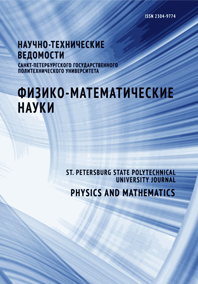Experimental setup for studying the blue light effect on sense of time among persons with different type of vegetative regulation
The effect of blue illumination (wavelength is about 460 nm) on human perception of short-time intervals of light, depending on a person’s predominance of activity of the sympathetic or parasympathetic parts of the autonomic nervous system has been studied using an experimental setup based on the LED dynamically controlled lighting system. The persons measured the duration of a minute before and after exposure to white (a control group) or monochromatic blue light. The effect of blue light was manifested in the predominance of excitability of the sympathetic part of the autonomic nervous system. The same persons showed a tendency to shorten the duration of the subjective minute after the light exposure. A similar effect of white light did not lead to significant changes in the same characteristics. The results of the study suggest that the individual effect of blue light on the function of time perception can be mediated through the regulation of the heart rate.


